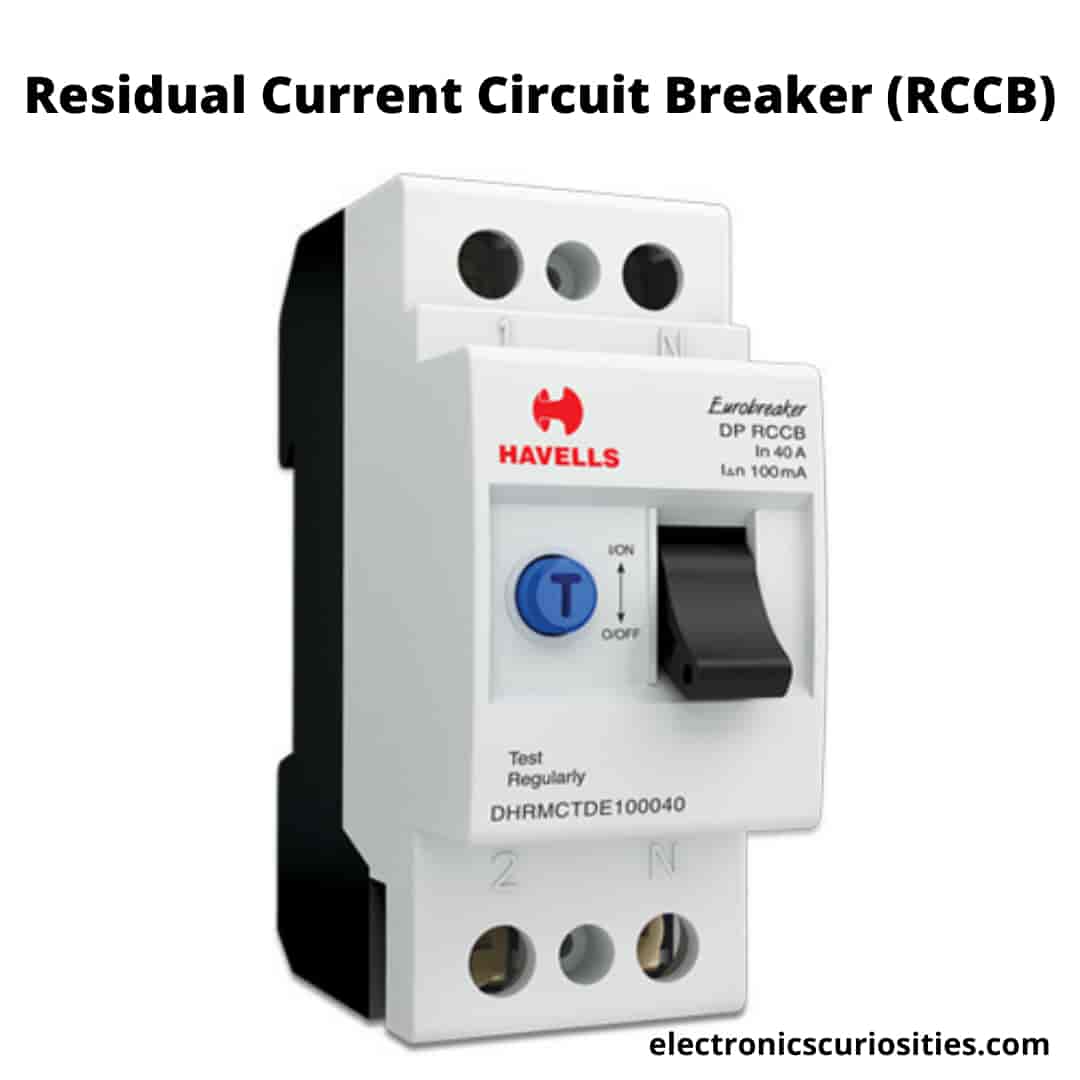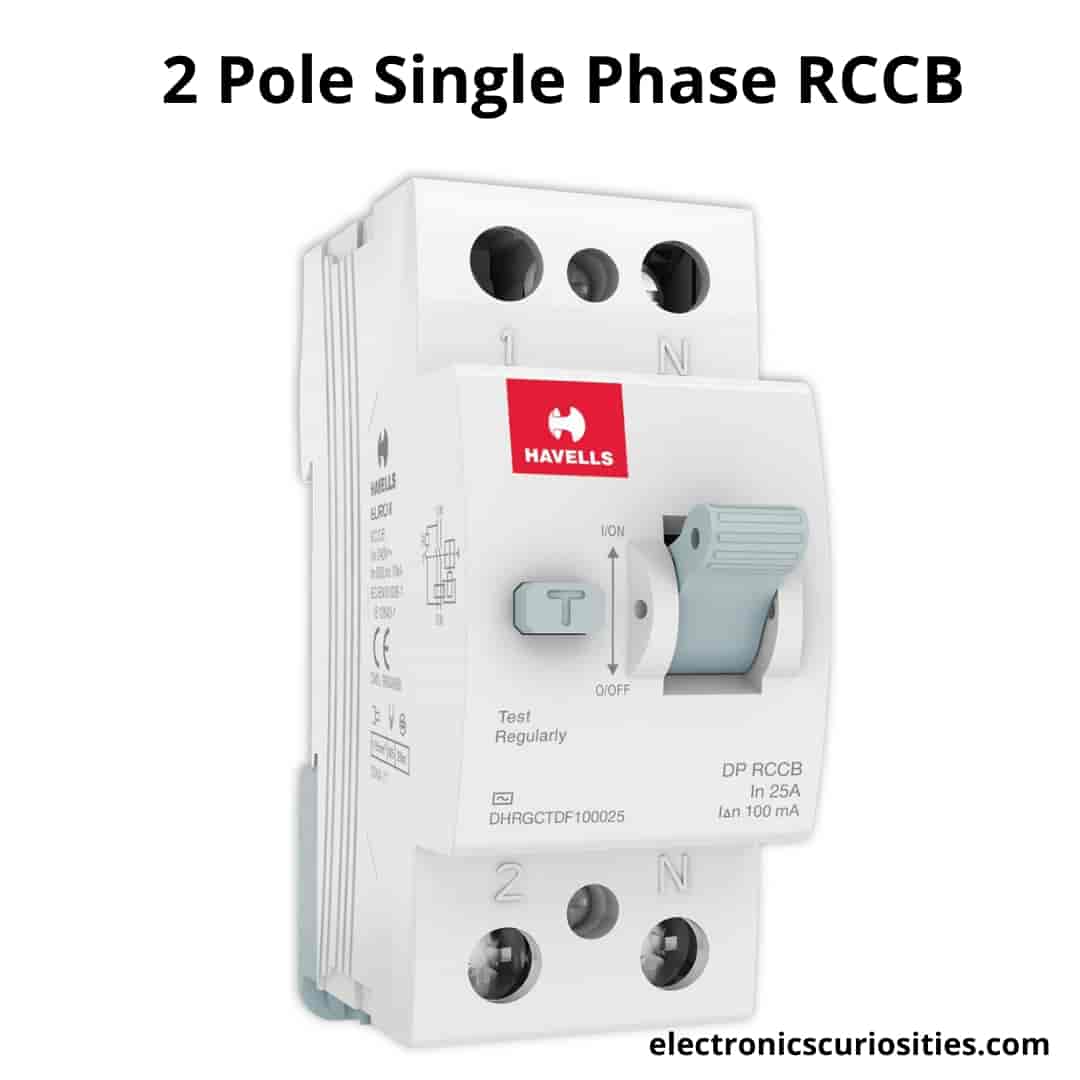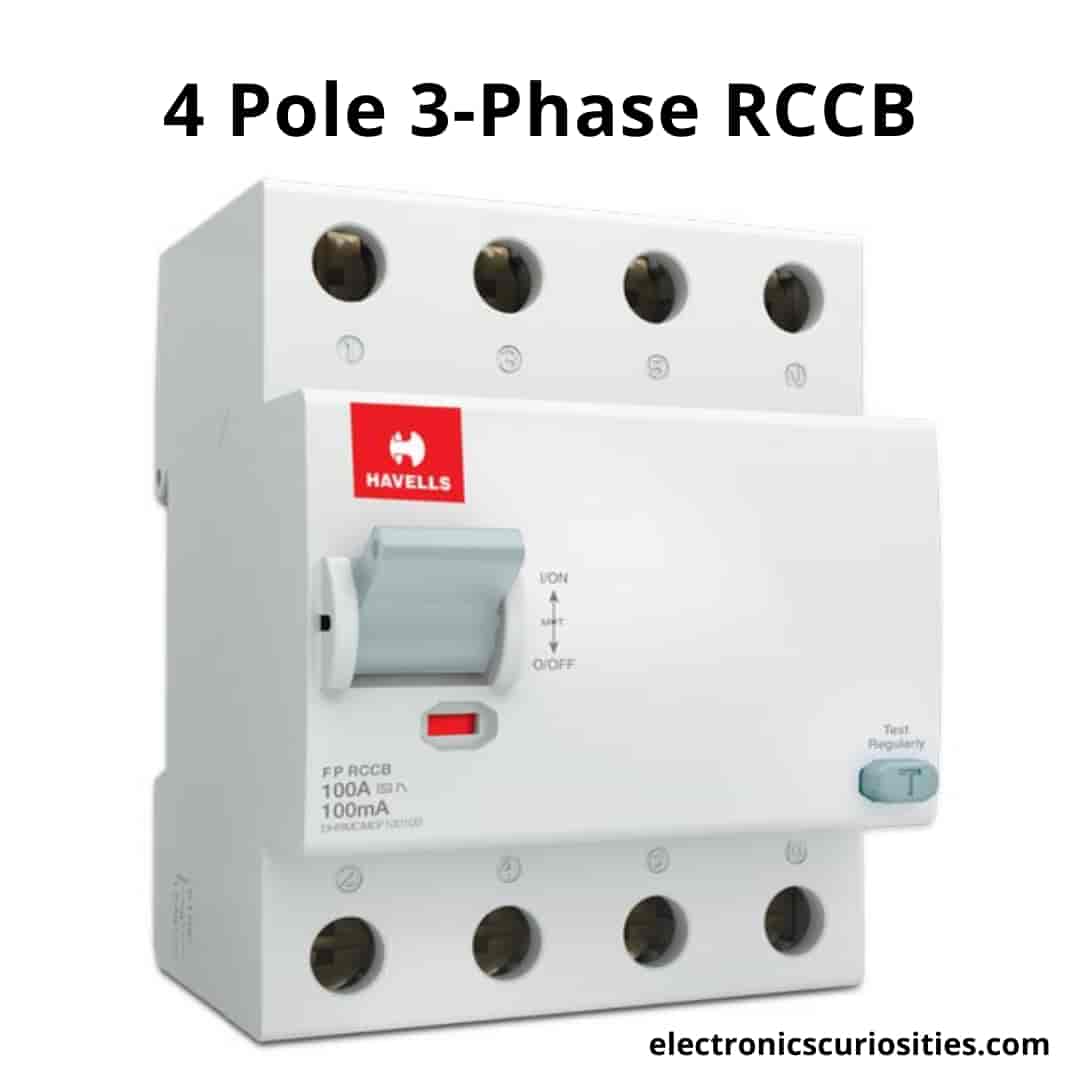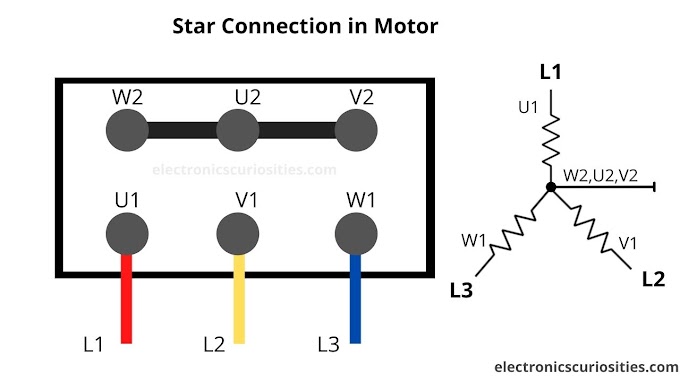What is RCCB - What is it? How does it work?
This article of What is RCCB has complete information about RCCB. In which what is RCCB? How does it work? What are the types of RCCB? You will get answers to all such questions from here.
What is RCCB?
The full name of RCCB is Residual Current Circuit Breaker. It is used to avoid electrical shock.
Most of the electrical accidents that occur in our homes are due to the presence of electrical appliances such as refrigerators, heaters, washing machines, ovens, water motors, and water motors that touch the body with the live electrical wire and if a person touches it, then he feels electric grief.
Sometimes fatal accidents also happen due to electric shock. The role of RCCB is important to remove this type of suddenness from the mood. Which is much better than protection devices like Fuse and MCB. In this article on What is RCCB, we will understand it in detail.
Why RCCB is a must? Why is RCCB necessary?
RCCB is an example of the best technology in electric protection devices. Electricity is a great useful thing but if it is not used properly, it is equally dangerous. A large electric shock can lead us to death in less than a second.
Reschedule Current Circuit Breaker-RCCB is the best type of safety device for human safety.
The human body is designed to withstand current up to 30mA. And according to the rating, the current of 30ma is also spread, then the RCCB trips immediately. Turns off the power supply. Which no person is afraid of getting an electric shock.
The life of a member of your family is precious from RCCB, which is available for two to three thousand rupees (26-40 Dollars). That is why, for the safety of yourself and your family, definitely get it installed in your home. Because RCCB is the best tool for human safety.
RCCB Function – How it works?
It is a differential current sensing device. The working principle of RCCB is that it continuously observes the current flowing in the circuit like CBCT (Core Balance Current Transformer).
If the electric circuit is healthy, then the same current passing through the phase wire should also pass through the neutral wire.
But if the circuit is abnormal, then the current flowing through it will be different. This senses the differential flow of phase and neutral, it is called residual current. And sensing this residual current, RCCB trips the circuit. disconnects from the supply.
RCCB senses Residual Current i.e. Unbalance of Phase and Neutral in Milli Ampere. And it separates the circuit from power within milliseconds. That is why, keeping human safety in mind, it is a great electrical safety device.
Whoever is reading this, I suggest that they must install it in their house because friends, the cost of RCCB -Residual Current Circuit Breaker can be two to three thousand (26-40 Dollars). Which is nothing in front of your family member so add RCCB to your home wiring.
Types of RCCB - Residual Current circuit Breaker
1) Two-pole RCCB
Two pole RCCB is used for a single-phase power supply. Where one side connects the incoming power supply phase and neutral (L and N). And on the other side, the outgoing supply (load) is connected.
2) Four pole RCCB
Four poles are used in a three-phase power supply in RCCB. Where three-phase wires and neutral wire are connected in the incoming and on the other side the load is connected. Which is then divided into different circuits.
Details of RCCB - Residual Current circuit Breaker
1) Trip test button
There is a trip test button on the top of the RCCB, where we can check whether the RCCB is working properly or not. But remember to test it, RCCB must be connected with the power supply.
A yellow color indication is available with the test button. That indication appears after we press the trip button or if the RCCB trip is actually due to any leakage. In other words, it indicates us.
2) Sensitivity
What residual current sensitivity RCCB do we need?
RCCBs are available in the range of 10mA to 500mA. We can select it according to our needs and our application.
A 10mA RCCB is used in the hospital's sensitive equipment.
Most of the 30ma and 100ma is used at the domestic level.
30ma, 100ma, 300m, and 500ma are also used in industries.
3) Rated Current
Available in ratings of 16A, 25A, 32A, 40A, 63A, 100A. What rating do we have to put, how much of our equipment
Do not load, keep the base on it.
4) Rated Voltage
At what voltage the RCCB will work, its details remain. Two pole RCCB has a voltage rating of 230 VAC and four-pole RCCB voltage remains 440VAC.
5) RCCB Manufacturer
Which company belongs to RCCB? Like there are companies like Siemens, Schneider, Havells, L & T, ABB, Anchor, Philips in the market and known for good quality.
Benefits of Reschedule Current Circuit Breaker
RCCB does not have short circuit protection. Electrically, there is protection for leakage current which will trip by sensing the unbalance of the circuit but there is no protection for the short circuit.
RCCB has overload protection which is thermal protection. Like in MCB - Miniature Circuit Breaker or MPCB - Motor Protection Circuit Breaker. If there is an overcurrent in the short circuit, it will trip, but due to thermal protection, it will take time. That's why RCBO - Residual Current Breaker with Overload protection is used for overload, short circuit, and leakage current protection.
When we put an RCCB of 10ma or 30ma, even small minor current leaks from the circuit, then it will immediately trip the circuit.
And if this happens, again and again, there will be trouble. Because it has to be reset every time. By the way, this problem is small in front of human security. But it is worth mentioning here too.
RCCB - Residual Current Circuit Breaker. This is an advanced version of ELCB - Electric Leakage Circuit Breaker. which is also called RCD - Residual Current Device.
Thank You!
Have a Great Day!






